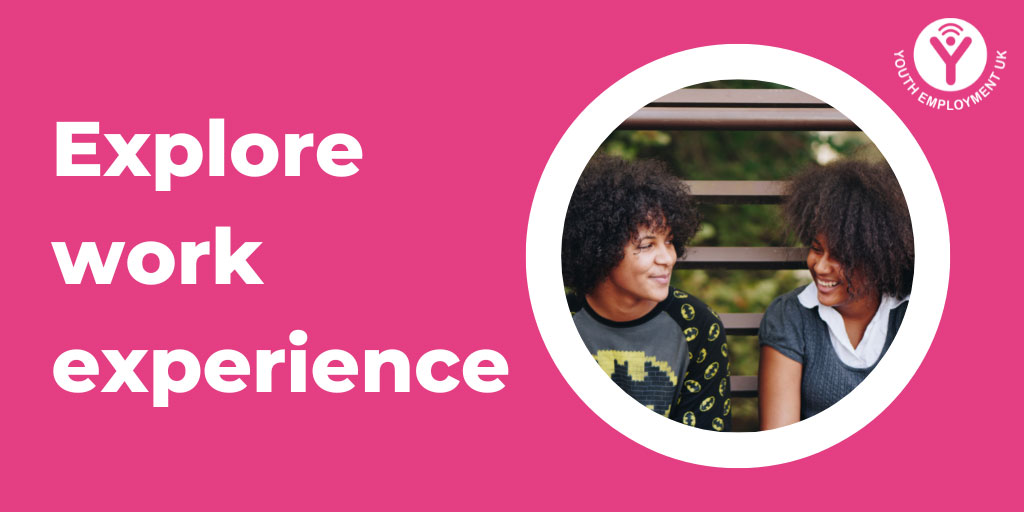How can you find great work experience placements while you’re at school? Check out our tips for school students in the UK.
Work experience is an enormously valuable part of your education. It allows you to spend time in a workplace and experience working life in a real-world setting. It looks great on your CV, allows you to hone your skills, and gives you a chance to try out a line of work to see if it’s for you.
Most school students will do work experience in Year 10, or occasionally in Year 11. If you go to Sixth Form or a further education college, you might also get a chance to do additional work experience in Year 12. Most placements last one or two weeks.
There are several ways to find great work experience placements for school students. Read on for a few of our top tips to help you find the right placement for you.
Start Early
Finding a great work experience placement begins with great planning. This means you need to start looking for placements well in advance of your work experience period beginning.
Your school should let you know your work experience dates in plenty of time, if you have to do your placement during a specific week (less commonly, schools will allow you to make your own arrangements as long as your placement does not conflict with important dates such as exams).
As a guide, start researching work experience opportunities at least three months in advance of when you hope to carry out your placement.
Decide What You’d Like to Do
Many students already know exactly what they’d like to do for their work experience. If you already have a career path in mind, you’ll want to look for something related to that field. Your tutor or careers advisor should be able to help you identify possibilities based on your chosen career.
But what if you don’t know what you want to do yet? First, don’t panic. It’s completely normal to not have your future career mapped out yet. Here are a few questions to ask yourself as you start narrowing down your options:
- What are my strengths and weaknesses?
- What subjects do I enjoy, and am I good at, at school?
- What sort of career can I imagine myself in?
- Do any of my hobbies or interests translate to possible career paths?
You can also try the UCAS Career Quiz or ask your friends, family, and teachers for their thoughts on what you’d be good at.
Find a Placement Through Your School
Many schools have existing agreements in place with local workplaces to provide work experience for students. If yours has something like this, it’s a great place to start.
Talk to your tutor or careers advisor and ask them whether the school has any such arrangements in place. It’s best if you have at least a general idea of what you’d like to do at this stage.
Once you’ve identified a suitable placement, follow the instructions for how to apply. You may need to complete a form, send a letter, use an online application system, or provide a letter of recommendation from a teacher.
Look at Large Companies
Many large companies have well-established work experience schemes, both at their head offices (which tend to be located in big cities) and at their branches all over the country. So if there’s a particular company that appeals to you, Google their name and the words “work experience” to see what’s available.
These schemes tend to be competitive, so take the time to make your application as good as it can possibly be. It’s also a good idea to apply for more than one placement in case you receive a rejection from your first choice.
Severn Trent and McDonald’s are just some of the major companies that offer work experience schemes.
Consider Small and Local Businesses
Many smaller and local companies do not have dedicated work experience schemes, but may still be prepared to take you on for a placement. If there’s an organisation in your area that appeals to you, just reach out and ask.
Start by dropping in, making a call, or sending an email to the manager to make your initial enquiry. Tell them a little bit about who you are, why you’re interested in work experience at their business, and what you can bring to the table. Then ask if they’d be open to offering you a placement and if so, how you should go about formally applying.
Think Outside the Box
Remember that you’re not limited to traditional businesses for your work experience. Many students also find placements at charities, public sector organisations, local government, the arts and cultural sector, and even schools and other educational organisations.
The most important thing is not to limit yourself. Get creative and you might find that there are far more possibilities open to you than you initially imagined.
Tips for a Great Application
You should approach your work experience placement in the same way you would a job application. In other words, you need to make an effort to put in the best application you can and convince the prospective employer that they need you on their team.
Here are a few tips to follow as you craft your work experience application:
- Always follow the instructions and never try to bypass the specified application process.
- Address the right person and make sure you spell their name correctly.
- Be positive, but be yourself.
- Talk about what you can offer to them.
- Tailor your application to each individual placement. Employers can tell if you send them something generic.
- Use the correct sign-off (“Yours Sincerely” if you are addressing the recipient by name, and “Yours Truly” if you don’t know their name.)
- Proofread your application and double-check your spelling before you send it.
- Always send your application well in advance of the deadline.
Final top tip: Try virtual work experience!
Virtual work experience is a great way to learn about interesting jobs, an industry you like the sound of (like catering), or just the world of work in general. Our virtual work experience courses are online and free. Using videos and interactive digital workbooks, they help you explore the world of work and build your career confidence. Complete them at your own pace, you’ll get a certificate of achievement at the end. You can even explore virtual work experience guides from famous employers like McDonald’s and Surrey County Council!
Virtual Work ExperienceTeacher resources for work experience
We partner with many Youth Friendly Employers who offer quality work placements, and all our free online work experience courses for KS3/4 students come with editable student work books and teaching guides.
Support for TeachersGood luck with finding a great placement!














